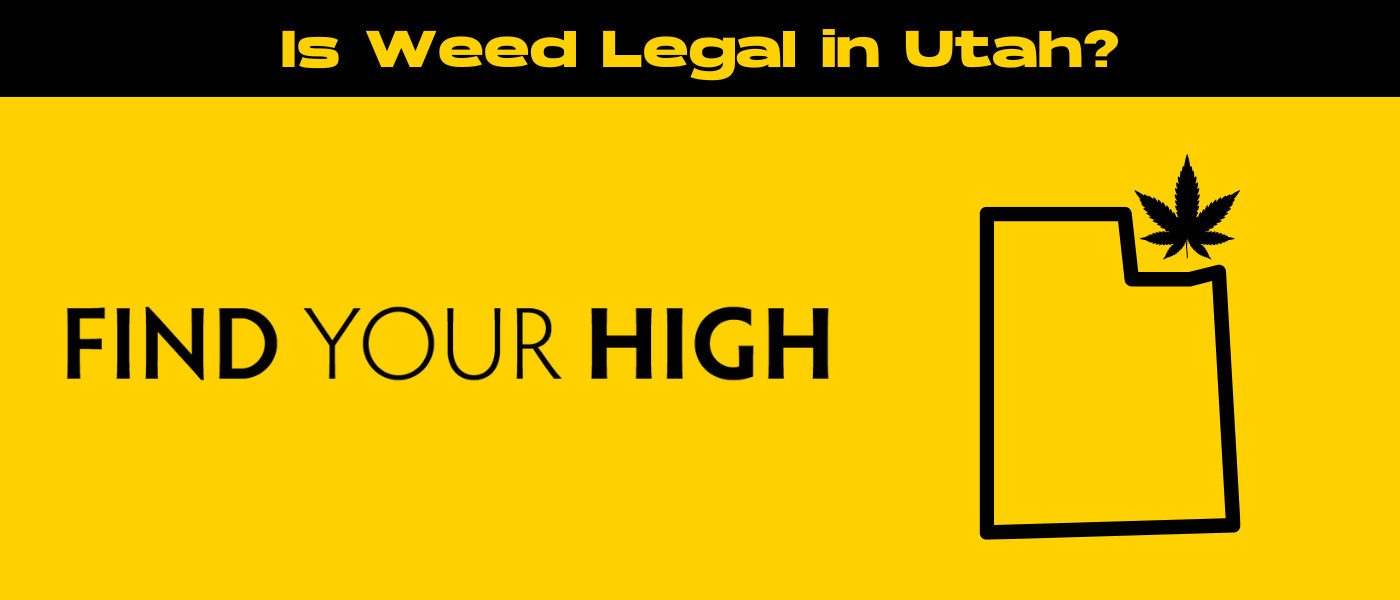Is delta 9 legal in Utah? When it comes to the legality of Delta 9 THC, it’s essential to know where you stand, especially if you’re in Utah. After all, the question on many potential residents’ minds is: Is Delta 6 Legal in Utah?
Delta 9 THC is the chemical responsible for most of marijuana’s psychoactive effects, making it a hot topic for lawmakers and consumers alike. Getting a grip on the legal status of Delta 9 in Utah can save you from a lot of potential headaches.
In this blog, we’ll dive into what Delta 9 THC actually is, why understanding its legality is important, and provide a rundown of the key points you need to know about its status in Utah. So, let’s get started and clear up any confusion you might have!
What is Delta 9 THC?
Delta 9 THC, short for Delta-9-tetrahydrocannabinol, is the primary psychoactive compound found in cannabis. Essentially, it’s the molecule that makes you feel “high.”
Chemically speaking, Delta 9 THC has the formula C₂₁H₃₀O₂, and it’s created through the decarboxylation process, which involves heating the cannabis plant.
Now, you might wonder how Delta 9 THC is different from other hemp-derived cannabinoids like Delta 8 THC and CBD. Well, Delta 8 THC is pretty similar to Delta 9 in terms of structure but has a slightly different bond placement, making its effects milder. CBD, on the other hand, is non-psychoactive and is often praised for its potential therapeutic benefits without the high.
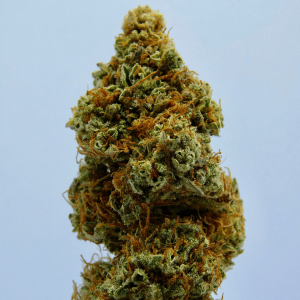
Federal Laws on Delta 9 THC
When it comes to federal laws on Delta 9 THC, things can get a bit complicated. Under the Controlled Substances Act, Delta 9 THC is classified as a Schedule I substance, which means it’s considered illegal at the federal level.
However, the landscape started to shift with the introduction of the 2018 Farm Bill. This bill legalized hemp and hemp-derived products, provided they contain no more than 0.3% Delta 9 THC by dry weight. Essentially, this means that while marijuana remains illegal federally, products derived from hemp that meet the THC threshold are in the clear.
This legal nuance opened up a whole new market for hemp products, but it also created a patchwork of regulations that can be tricky to navigate. Understanding federal laws helps you make informed choices, especially since state laws, like those in Utah, might have their additional layers of regulation.
Utah’s State Laws on Marijuana
When diving into Utah’s state laws on marijuana, it helps to take a step back and look at the historical perspective. The state has traditionally maintained stringent regulations against cannabis, including cannabinoids like THCa.
However, things began to change with the passage of Proposition 2 in November 2018, which legalized medical marijuana. Today, patients with qualifying conditions can obtain medical marijuana cards and access a range of cannabis products, including those with THCa, from state-approved dispensaries. Hemp-derived delta-9 THC products are also regulated under the Hemp Extract Registration Act.
On the other hand, recreational marijuana remains illegal in Utah, reflecting the state’s cautious approach toward cannabis regulation. While some states have embraced full legalization, Utah continues to focus strictly on medical usage, ensuring that access to cannabis and cannabinoids like THCa is controlled and carefully monitored.
Definition of Hemp and Marijuana in Utah Law
In Utah, the legal landscape draws a clear line between hemp and marijuana based on their Delta 9 THC content. According to state law, hemp products sourced from industrial hemp plants are defined as any part of the Cannabis sativa plant containing less than 0.3% Delta 9 THC on a dry weight basis.
In contrast, marijuana refers to cannabis plants or derivatives with Delta 9 THC concentrations above this threshold.
These definitions are crucial because they determine the legality of Delta 9 THC products. Hemp-derived products that meet the 0.3% stipulation are legal and can be freely sold and consumed within the state.
On the other hand, products derived from marijuana fall under stricter regulations and are only accessible to individuals with a valid medical marijuana card. This legal distinction aims to provide regulated access to cannabis while preventing the widespread recreational use of higher THC products.
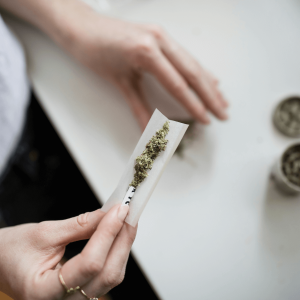
Medical Marijuana in Utah
To be eligible for medical marijuana in Utah, patients must meet specific criteria and follow a structured process.
First, you need to have a qualifying medical condition, such as chronic pain, epilepsy, multiple sclerosis, or PTSD. The full list of approved conditions is available on the Utah Department of Health website.
Once you’ve confirmed that your condition qualifies, the next step is to obtain a recommendation from a medical provider who is registered with the state’s medical cannabis program. After receiving this recommendation, you can apply for a medical marijuana card through the Utah Department of Health’s online portal. The application process involves filling out forms, providing proof of residency, and paying a fee.
Once approved, the medical marijuana card allows you to purchase cannabis from state-approved dispensaries. It’s a well-regulated system designed to ensure that only those with genuine medical needs can access cannabis, providing a controlled framework for its use in the state.
Possession and Usage Limits
Navigating the legal limits for possession and usage of medical marijuana in Utah is crucial to staying compliant with state laws. For qualified patients with a medical marijuana card, the state permits possession of up to a 30-day supply of cannabis.
In more specific terms, this generally translates to no more than 113 grams of unprocessed cannabis or an equivalent amount in other forms, such as capsules or tinctures.
It’s also important to understand where you’re legally allowed to use it. Public use is strictly prohibited; medical marijuana can only be consumed in private settings like your home or a medical facility. This restriction is in place to ensure public safety and maintain a clear boundary between medical and recreational usage.
Always keeping these limits and regulations in mind helps you responsibly benefit from medical marijuana without running into legal issues.
CBD vs. Delta 9 THC in Utah
Legal Status of CBD in Utah
When it comes to CBD, Utah takes a much more lenient stance compared to Delta 9 THC. Thanks to the 2018 Farm Bill, CBD derived from hemp (containing less than 0.3% Delta 9 THC) is fully legal at the federal level. This federal approval trickles down to Utah, making CBD products widely accessible throughout the state.
You can find CBD oils, gummies, creams, and other products at local stores and online without needing any special card or approval. It’s crucial to ensure that the CBD products you purchase meet the legal requirement of having less than 0.3% Delta 9 THC to stay compliant with both federal and state laws.
Comparison of CBD and Delta 9 THC Legality and Uses
While both CBD and Delta 9 THC originate from the cannabis plant, their legal statuses and uses differ significantly in Utah. CBD enjoys a relatively relaxed legal framework, allowing adults to purchase and use it freely, thanks largely to its non-psychoactive nature. People often use CBD for its potential wellness benefits, such as relieving anxiety, reducing pain, and improving sleep.
On the other hand, Delta 9 THC faces more stringent regulations due to its psychoactive properties. As a Schedule I substance under federal law, products high in Delta 9 THC are illegal unless they are derived from hemp and contain less than 0.3% THC by dry weight. In Utah, medical marijuana laws add another layer to this legal puzzle. Only patients with qualifying medical conditions can access higher concentrations of Delta 9 THC, and even then, they must go through a rigorous process to get a medical marijuana card.
In summary, while CBD is widely accessible and legal in many forms, Delta 9 THC is heavily regulated and primarily reserved for medical use. This differentiation helps provide options for those seeking therapeutic benefits without the high, while still offering a controlled pathway for patients needing stronger relief through medical marijuana.
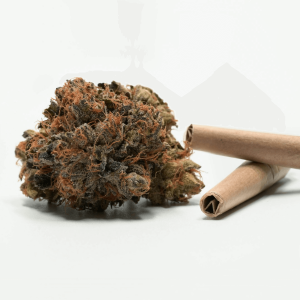
Impact of Delta 9 THC on Employment
Navigating the interplay between Delta 9 THC usage and employment can be tricky for Utah residents, especially given the state’s strict drug testing policies. Employers in Utah have the right to implement drug-free workplace programs and may conduct regular or random drug tests, which commonly screen for THC.
The legal status of Delta 9 THC in Utah adds layers of complexity to employment rights. For instance, while medical marijuana patients are legally permitted to use cannabis, this doesn’t necessarily protect them from employment consequences if they test positive for THC. Employers can still enforce drug-free policies and even have grounds for termination in some cases.
It’s crucial for employees who use medical marijuana to understand their workplace’s drug testing policies and approach their employers to discuss any accommodations that might be possible under the Americans with Disabilities Act (ADA). Being informed and proactive can help ensure that medical needs are balanced with workplace requirements.
Penalties for Illegal Possession
If you’re caught possessing Delta 9 THC without a medical marijuana card in Utah, be prepared to face some serious legal repercussions.
The state has strict penalties for illegal possession, which can include heavy fines, community service, and even jail time depending on the amount you’re carrying. For example, possessing less than one ounce of marijuana can result in a misdemeanor charge, which might lead to a fine of up to $1,000 and possibly six months in jail. For amounts between one ounce and one pound, the fines and jail time can increase significantly.
Beyond legal penalties, having a drug charge on your record can have long-term consequences on your employment opportunities and social standing. It’s essential to understand the laws and always carry your medical marijuana card if you’re legally allowed to use cannabis for medical purposes.
Retail and Dispensary Regulations
Operating a cannabis dispensary in Utah involves navigating a landscape of strict licensing requirements aimed at ensuring safety and compliance. To open a dispensary, applicants must undergo a rigorous vetting process, including background checks and financial disclosures, and demonstrate their capacity for secure storage and handling of cannabis products.
Once licensed, dispensaries are subject to continuous oversight, with regular inspections to ensure adherence to state regulations.
These establishments must also adhere to rules for selling Delta 9 THC products, which include verifying the medical marijuana card of each customer, adhering to purchase limits, and ensuring that all products are tested and properly labeled.
By following these stringent guidelines, dispensaries help maintain a safe and regulated market for medical marijuana in Utah.
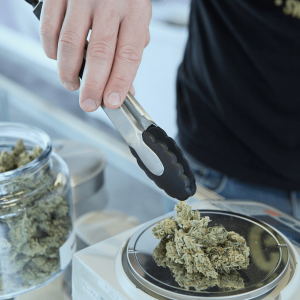
Conclusion
To wrap things up, let’s recap the key points we’ve covered to answer the question: Is Delta 9 legal in Utah?
We discussed how CBD is more freely accessible due to its non-psychoactive properties, whereas Delta 9 THC is heavily regulated and primarily available for medical use. Employment laws in Utah can be tricky for medical marijuana users, and understanding workplace drug policies is crucial. Penalties for illegal possession can be severe, and dispensaries must adhere to strict regulations to operate legally.
Looking ahead, the future of Delta 9 THC in Utah remains a landscape of cautious optimism. As more research is conducted and public opinion continues to evolve, there could be shifts towards more lenient regulations. However, it’s essential to stay informed and understand the current laws to navigate the complex world of medical marijuana effectively.
Frequently Asked Questions
1. Can you get Delta 9 in Utah?
Yes, you can get Delta 9 THC in Utah, but it’s not as straightforward as you might hope. Delta 9 THC is available primarily for medical use, meaning you need a qualifying medical condition and a medical marijuana card to legally purchase and possess it. Recreational use of Delta 9 THC remains illegal in the state.
2. Is Delta 9 OK to fly with?
Flying with Delta 9 THC can be a tricky situation. While federal law prohibits the transportation of marijuana, including Delta 9 THC, across state lines, there can be some leeway for medical marijuana patients. If you’re considering flying with Delta 9, it’s crucial to check both federal guidelines and the specific regulations of the states you’re traveling between. Always carry your medical marijuana card and consult your airline’s policies beforehand to avoid complications.
3. Why is Delta 9 illegal?
Delta 9 THC is illegal under federal law primarily due to its psychoactive properties, which can lead to altered states of consciousness and potential abuse. It is classified as a Schedule I substance under the Controlled Substances Act, indicating a high potential for abuse and no accepted medical use at the federal level. This classification makes recreational use and possession of Delta 9 THC illegal in most states, including Utah, where stringent regulation is in place.
4. Is Delta 10 legal in Utah?
Delta 10 THC falls into a similar legal grey area as Delta 8 THC and Delta 9 THC. Under Utah law, any THC product derived from hemp with less than 0.3% Delta 9 THC is technically legal. However, because Delta 10 is a relatively new compound, it’s essential to stay updated on state regulations. For now, exercise caution and consult local laws to ensure compliance when purchasing or using Delta 10 THC products in Utah.

 Rewards
Rewards



